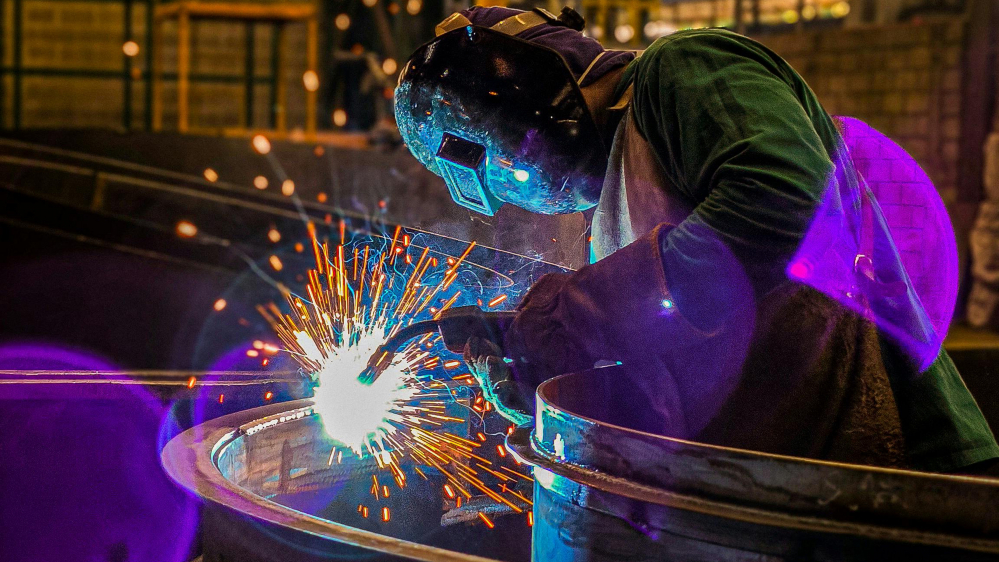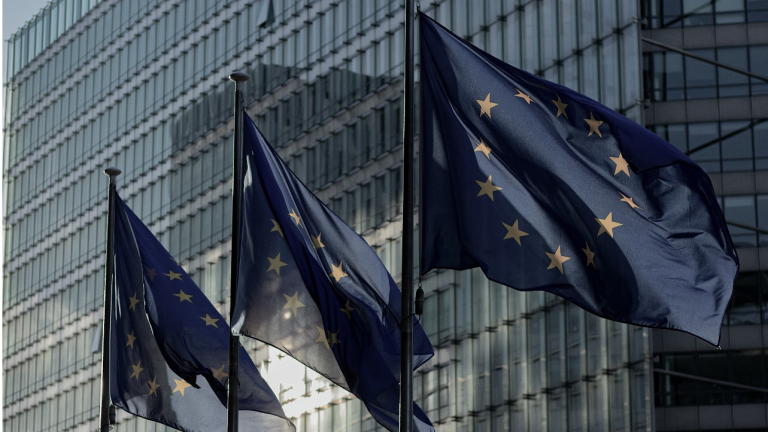Unshackling Europe’s Economy: what holds us back?
Tue 24th September 2024
Thon EU Hotel
This timely conference will debate Europe's economic future and the barriers to achieving greater competitiveness, productivity and prosperity. The opening panel will delve into the complexities of industrial strategy, explore the impact of zombie companies, and discuss the power of 'creative destruction.' Following the Letta report on the Single Market, and in anticipation of the much-awaited Draghi report on European competitiveness, the conference will examine the options for reversing Europe’s poor economic performance. A session on ‘Rethinking the Green Deal’ will consider the impact of high energy costs and ever more stringent environmental regulations on European economies and asses the political, economic and technological opportunities to change tack in the wake of farmer protests and warnings from industrialists. The final session on ‘Artificial Intelligence and harnessing Europe’s innovative potential’ will address the impact of low levels of investment in R&D, underperforming capital markets and precautionary regulation on both European tech startups and investment by businesses more generally to achieve improved productivity from implementing technological breakthroughs.
REGISTER HERE
Sessions include:
- Unshackling Europe’s economy: what holds us back?
- Rethinking the Green Deal: ensuring affordability, security and prosperity
- Artificial Intelligence: how can we harness Europe’s innovative potential?
Speakers include:
- Matthias Bauer, Director and Senior Economist, European Centre for International Political Economy (ECIPE)
- Thomas Fazi, author, researcher and journalist, author, MCC Brussels’ report, ‘The silent coup: the ever-expanding scope of the European Commission and the consequences for democracy’
- Alexander Horn, author of ‘Die Zombiewirtschaft – Warum die Politik Innovation behindert und die Unternehmen in Deutschland zu Wohlstandsbremsen geworden sind’
- Géza Kovács-Dobák – State aid and Industry expert, National Ministry for Economy of Hungary – European Commission DG COMP (Seconded National Expert)
- Phil Mullan, author of 'Creative Destruction: How to Start an Economic Renaissance' and 'Beyond Confrontation: Globalists, Nationalists and Their Discontents'
- Dorien Rookmaker, professional Risk Manager, former member of the European Parliament and the ECON and TRAN committees, and founder of the Dutch political movement More Direct Democracy
- Keith Teare, Silicon Valley based entrepreneur and CEO of SignalRank Corporation
- MEP Beatrice Timgren, member of the Committee on the Environment, Public Health and Food Safety (ENVI), ECR (Sweden Democrats)
Programme and session descriptions
12:30 to 1:15pm
Registration and sandwich lunch
1:20
Welcome
1:30 to 3:00
Unshackling Europe’s economy: what holds us back?
Most economists agree that Europe fails to exploit its economic potential. It has a range of world-leading industries and cutting-edge scientists and technologists. Yet growth is sluggish, new technologies are often held back, and new industries often prefer to develop in other parts of the world. What holds Europe back? High energy costs, low productivity growth, low levels of investment in R&D and underperforming capital markets have all been cited as key barriers to be addressed within EU member states. Others talk about the lack of a serious industrial strategy, or the burden of so-called “zombie companies” – bad business kept alive by cheap debt or government support. Does Europe need a bit of “creative destruction” to get the economy moving again?
In EU circles, much debate focuses on the need to extend the Single Market to provide European companies with better opportunities. Yet the Single Market is also said to cover companies in red tape and prevent member states from making sensible investments at the national level.
Following the Letta report on the Single Market, and in anticipation of the much-awaited Draghi report on European competitiveness, what are the options for reversing Europe’s poor economic performance? This debate is an opportunity to gain fresh insights and contribute to the conversation on unleashing Europe's economic potential.
- Matthias Bauer, Director and Senior Economist, European Centre for International Political Economy (ECIPE)
- Géza Kovács-Dobák – State aid and Industry expert, National Ministry for Economy of Hungary – European Commission DG COMP (Seconded National Expert)
- Phil Mullan, author of 'Creative Destruction: How to Start an Economic Renaissance' and 'Beyond Confrontation: Globalists, Nationalists and Their Discontents'
- Dorien Rookmaker, professional Risk Manager, former member of the European Parliament and the ECON and TRAN committees, and founder of the Dutch political movement More Direct Democracy
3:00 to 3:15
Coffee break
3:15 to 4:30
Rethinking the Green Deal: ensuring affordability, security and prosperity
Since its launch in December 2019, when European Commissioner von der Leyen proclaimed it as Europe’s ‘man on the moon’ moment, the EU’s Green Deal has become a significant source of controversy, particularly in the run-up to the June 2024 European Parliament elections. Tens of thousands of farmers demonstrated across Member States about crippling environmental regulations, businesses argued forcibly that excessive green bureaucracy and high energy prices are making Europe an unattractive and uncompetitive place to locate, whilst many citizens struggled with the cost of heating their homes. The Greens/EFA lost proportionally more seats than any other group in the EP elections but, having helped to secure von der Leyen a second term as Commissioner, they claim to have secured commitments from the new President to continue the Green Deal.
In response to pressure from business – such as the Antwerp Declaration for a European Industrial Deal – von der Leyen committed to introduce a new “Clean Industrial Deal” early in her second mandate, aimed at directing investment towards infrastructure and industry and helping industry to lead markets ‘in everything from clean steel to clean tech’. What is the reality behind the rhetoric? Can Europe steel a march on clean technologies when it lags so far behind in other sectors? What’s the balance on EU environmental regulations being a spur to innovation or a barrier to creativity and risk taking? Is there the political will for a change in trajectory?
- Thomas Fazi, author, researcher and journalist, author, MCC Brussels’ report, ‘The silent coup: the ever-expanding scope of the European Commission and the consequences for democracy’
- Alexander Horn, author of ‘Die Zombiewirtschaft – Warum die Politik Innovation behindert und die Unternehmen in Deutschland zu Wohlstandsbremsen geworden sind’
- MEP Beatrice Timgren, member of the Committee on the Environment, Public Health and Food Safety (ENVI), ECR (Sweden Democrats)
4:40 to 5:55
Artificial Intelligence: how can we harness Europe’s innovative potential?
The EU’s AI Act came into force on 1 August 2024. Though lagging the United States and China in AI development, the EU is striving to establish itself as a global rule-setter in digital technologies. With concerns running high for some about AI-powered techniques such as profiling, targeting, election manipulation, and disinformation campaigns, eurocrats have celebrated the EU AI Act as the globe’s first comprehensive legal framework around AI. Yet the ability of European businesses to catch up with the pace of AI development and implementation remains very much in doubt.
Can European businesses overcome the challenges posed by this stringent regulatory landscape to remain competitive on the global stage? Mark Zuckerberg and Daniel Ek, CEOs of Facebook and Spotify, recently issued a high-profile statement warning that ‘pre-emptive regulation of theoretical harms for nascent technologies such as open-source AI will stifle innovation’ and ‘Europe’s risk-averse, complex regulation could prevent it from capitalising on the big bets that can translate into big rewards’. Others welcome the EU’s attempt to build public confidence in AI and to shape its future direction to maximise public goods and minimise harmful and unforeseen consequences.
In addition to questions over the EU’s risk averse approach to regulation, industry also warn of other drawbacks, including investment shortfalls and scalability issues, that could hinder innovation. As one Silicon Valley entrepreneur has commented, innovation in Europe is held back by an absence of ‘genuine risk-seeking capital at all stages’ pointing to a wider problem of risk aversion. Join us to contribute to the discussion about Europe’s appetite for investment in AI and whether the EU AI Act is stifling innovation or helping to shape the development and use of AI in a way that maximises its potential to do good?
- Keith Teare, Silicon Valley based entrepreneur and CEO of SignalRank Corporation
5:55
Closing comments
6:00 to 7:00
Wine reception


